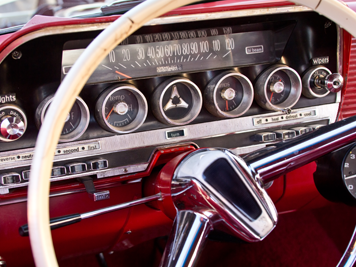Automobile collections represent a diverse array of interests, from antiques to classics to high-tech supercars. One thing all collectors share is a passion for driving. But when it comes to taking prized vehicles out on the road, collectors need to keep risks in mind to best protect their valuable investment.
Resources
1 “Injury Facts, Motor Vehicles Overview,” National Safety Council;
https://injuryfacts.nsc.org/motor-vehicle/overview/introduction/
2 “Historic Vehicle Registration Laws,” FindLaw.com, November 7, 2019;
https://www.findlaw.com/traffic/drivers-license-vehicle-info/historic-vehicle-registration-laws.html



